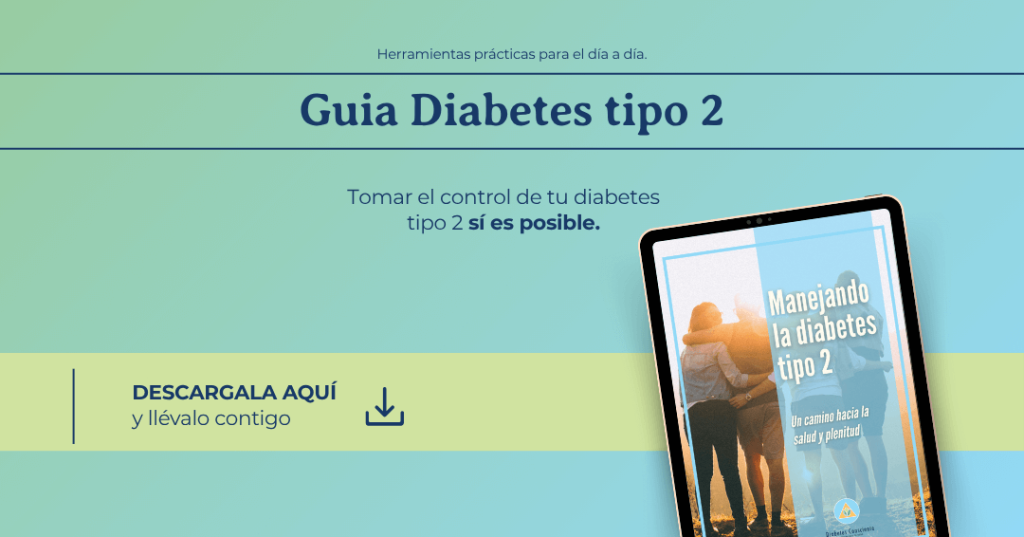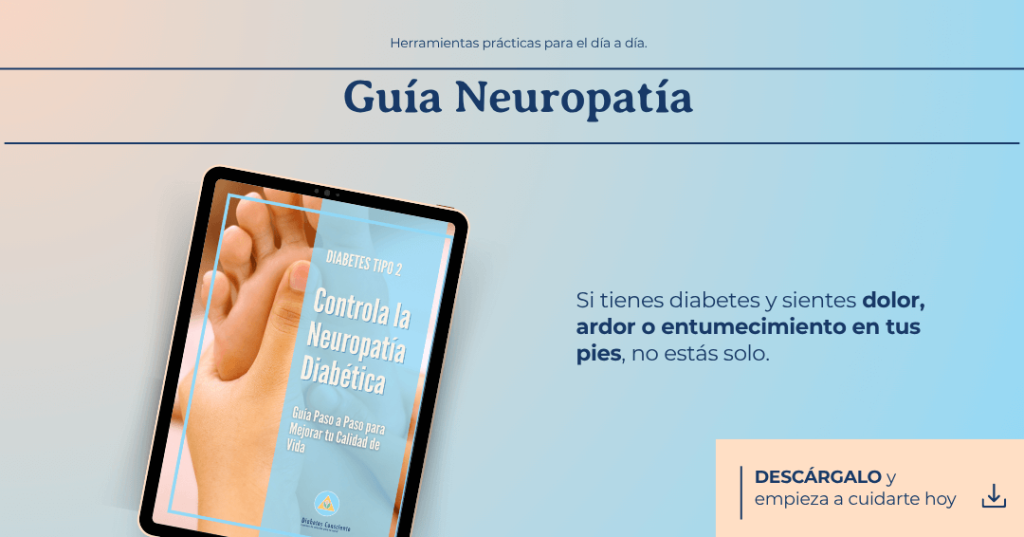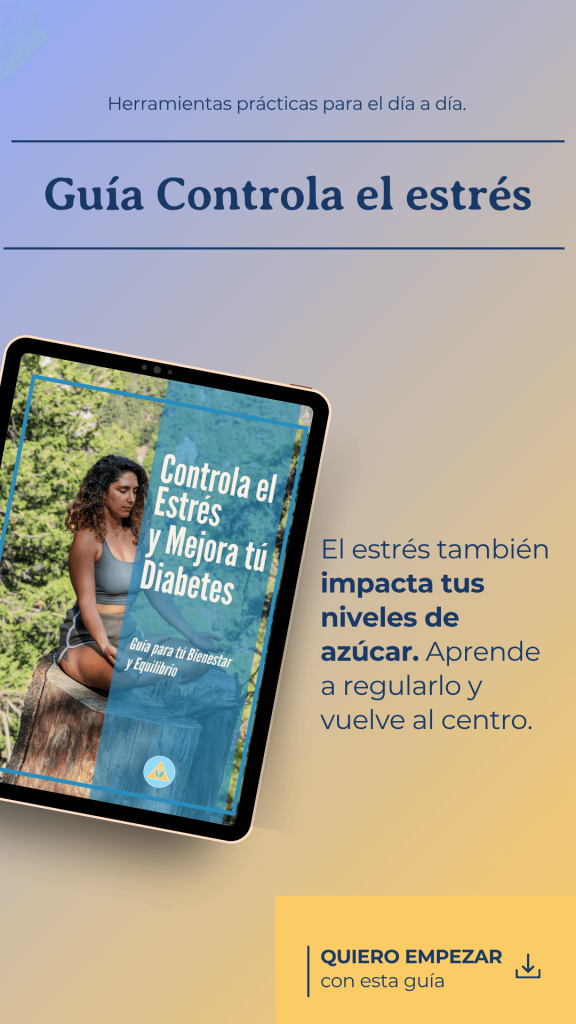Tabla de contenidos
A 26-year-old runner, ideal weight, perfect diet just received a diagnosis she never expected: gestational Diabetes. If you think gestational Diabetes only affects older or overweight women, we have vital information to share with you.
👋🏼 Hi, we’re Diabetes Consciousness, and today we’re responding to a message from a follower in our community that has prompted us to reflect deeply on this topic. Because it doesn’t matter if you’re super fit, an athlete, or watch every detail of your nutrition, any woman can develop gestational Diabetes. That includes your sister, your best friend, or even you.
In the past two decades, gestational Diabetes has increased significantly from around 3% to as high as 17% in some regions.
🔍 Source: Zhu & Leng, 2019, Diabetes Research and Clinical Practice
We’ll examine five profiles of women with a higher risk of developing this condition, so you can identify potential risk factors and take timely action. Plus, you’ll understand what this means for your baby and how proper management can prevent nearly all complications.
Having this information empowers you to prepare your body, habits, and care, even before you become pregnant. And if you’re already pregnant, it can help you navigate the situation and find real solutions.

In the past, very few women developed gestational Diabetes. Unfortunately, that number has grown significantly, reaching up to 29.6% in some parts of Latin America.
🔍 Source: Pan American Health Organization, 2020
So why is this happening?
Our modern environment is creating conditions that promote metabolic disorders, including gestational Diabetes. Here’s why:
1️⃣ Ultra-processed foods are common in everyday diets. Even items that seem healthy may contain hidden added sugars. That “natural” granola bar? It might have more sugar than a soft drink.
2️⃣ Sedentary lifestyles are normalized. Many women work in sedentary positions for extended periods, which can lead to their muscles losing the ability to process glucose efficiently.
3️⃣ Chronic stress is more common than ever. Sustained high cortisol levels disrupt our hormonal balance.
4️⃣ Exposure to endocrine disruptors, such as BPA in plastic containers, chemicals in kitchenware, and pesticide residues in food, can disrupt hormonal systems.
🔍 Source: Rochester, 2013, Endocrine Reviews
5️⃣ Genetics: A family history significantly increases the risk.
GENETICS, YOUR RISK MAP

Imagine a 29-year-old woman in her first pregnancy, no apparent risk factors, who develops gestational Diabetes. Upon closer inspection, a family pattern emerges. Specific genes like MTNR1B and TCF7L2 can increase the likelihood of gestational Diabetes by up to 28% in 30% of the population.
🔍 Source: Nature Genetics, 2006 & 2009
And inherited conditions like Polycystic Ovary Syndrome (PCOS) whether in you, your mom, or sister are also linked to insulin resistance and relevant genes.
Have you noticed a pattern in your family?
- Generation 1: Grandmothers with large babies and late-onset Diabetes after age 60?
- Generation 2: Mothers diagnosed with type 2 diabetes after 40?
- Generation 3: Daughters who developed gestational Diabetes?
Studies show that:
- If your mother had gestational Diabetes, your risk is 6 times higher.
- If your father has type 2 diabetes, the risk rises by 3.7%.
If both parents have glucose issues, the risk can reach 70%.
🔍 Source: Williams et al., 2013, Diabetology
This isn’t to alarm it’s to increase awareness. If you have a genetic predisposition and are exposed to modern lifestyle factors such as ultra-processed foods, high stress, and low physical activity you can still take adequate preventive measures.
Your genes don’t define your destiny, but they do reveal a risk map you should recognize in time.
THE 5 RISK PROFILES FOR GESTATIONAL DIABETES
To help you identify your risk factors and focus on what you can control, we’ve created five risk profiles, each with a memorable name to make them easy to recognize. This isn’t about labeling it’s about translating clinical data into prevention strategies.

1: "The Conscious Inheritor"
Do you relate to this?
- You have a family history of type 2 diabetes, PCOS, or insulin resistance.
- You may carry gene variants, such as TCF7L2 and PPARG, which affect glucose processing.
🔍 Source: Florez, 2008, Clinical Chemistry
Possible signs:
- Intense sweet cravings since adolescence
- Abdominal fat accumulation
- Fatigue after large meals
Your advantage: Knowing your predisposition means early prevention can benefit you the most. Risk is higher but so is your power to act.
2: "The Balanced Professional"
Sound familiar?
- A working woman over 30 with a demanding career
- Possibly a first pregnancy after 30
- Stress and long sedentary work hours
Impact: Chronic stress increases cortisol, which counteracts the effects of insulin. Every hour of sitting can reduce insulin sensitivity by 2%.
Signs you might notice:
- Waking up tired despite a whole night’s sleep
- I need coffee to get through the day
- Eating mindlessly at work
Your advantage: Your dedication to your career can be mirrored in your metabolic health discipline, with excellent results.
3: "The Surprised Slim Woman"
Could this be you?
- A healthy weight, a good diet, and occasional exercise. Everything looks fine.
- But here’s the thing—you can be metabolically obese despite a normal weight.
- Hidden visceral fat and low muscle insulin sensitivity can exist without visible signs.
🔍 Source: Ruderman et al., 1998, Diabetes
Subtle clues:
- Bloating after eating carbs
- Energy dips during the day
- A few stubborn pounds that won’t budge
Your advantage: Though hard to detect, this profile responds best to targeted dietary and exercise adjustments.
4. "The Mature Planner"
Is this your case?
- First pregnancy after age 35 or 40
- Carefully planned the timing for motherhood
- After 35, women lose 1% of muscle mass yearly, and gestational diabetes risk increases by 6% per year.
🔍 Source: Ben-Haroush et al., 2004, AJOG
Changes you may have noticed:
- Slightly slower metabolism
- Longer post-workout recovery
- Subtle menstrual cycle shifts
Your advantage: You’re mature, organized, and informed. Use that to maintain consistent metabolic health.
5. "The Modern Exposed Woman"
You haven’t yet considered the daily exposure to endocrine disruptors in your environment and the products you use.
- BPA, phthalates, and pesticides can disrupt hormones
- Ultra-processed foods promote insulin resistance at a cellular level
Clues in your routine:
- Heating food in plastic containers
- Eating mostly packaged or pre-made meals
- Living in a highly polluted urban area
Your advantage: Environmental and dietary changes can produce fast and significant results in your metabolic health.
WHAT DOES GESTATIONAL DIABETES MEAN FOR YOUR BABY?

Your doctor may have already mentioned some short-term risks:
- Macrosomia – Large baby, difficult labor
- Neonatal hypoglycemia – Low blood sugar at birth
- Temporary respiratory issues
- Jaundice – High bilirubin requiring treatment
But here’s the long-term impact you need to know:
- Early Metabolic Programming: If your womb has sustained high glucose, the baby’s metabolism gets “programmed” to crave sugar, raising the risk of type 2 diabetes up to 7 times.
Caption note: Clausen et al., 2008, The Lancet
- Neurological Development: Glucose fluctuations affect fetal brain development, possibly impacting memory, attention, and impulse control.
Caption note: Ornoy et al., 2001, Reproductive Toxicology
- Generational Impact: If your baby is a girl, she could inherit both genetic and intrauterine programming, tripling her risk of gestational Diabetes in the future.
Studies show:
- 40% of children from uncontrolled GD pregnancies develop childhood obesity
- 25% show metabolic issues by age 5
- 15% develop type 2 diabetes before 30
🔍 Source: Clausen et al., 2009, Diabetology
Here’s the key takeaway: “Good control of gestational diabetes prevents 85 to 90% of these complications.”
Landon et al., 2009, New England Journal of Medicine
With early detection and proper management:
- Babies are born at healthy weights
- No detectable neurological issues
- Type 2 diabetes risk is reduced to normal
- Intergenerational effects can be neutralize
Target values:
- Fasting glucose under 95 mg/dL
- Post-meal glucose under 120 mg/dL
- HbA1c under 6%
HAPO Study, 2008, New England Journal Medicine.
It’s not about whether you develop gestational Diabetes—it’s about detecting risks early and taking timely action.
So, what should you do? What's the ACTION PLAN?
- Family Research: Ask about Diabetes in grandparents, large babies, and PCOS.
- Specialized Medical Evaluation: Check fasting glucose, HbA1c, and lipid profile. Be honest about which of the 5 profiles fits you.
- 90-Day Habit Reset
- Cut out ultra-processed foods.
- Start strength and resistance training, not just cardio.
- Reduce exposure to toxins, and eat real food.
- Manage stress: try breathing exercises, yoga, or meditation.
If you’re pregnant: Ask for an early glucose screening—before 24 weeks or even in the first trimester if you have risk factors.
Start dietary changes immediately and stay in touch with your doctor.
Now you have the knowledge to take action confidently and consciously. Thinking preventively leads to well-being. Ignoring reality delays action until it’s too late.
🌱 Looking at life through prevention and self-care gives us strength!
Do you know a woman or couple planning a pregnancy? Share this video. An informed mother makes the best choices for herself and her baby.
💬 Tell us in the comments:
Which profile fits you best?
What’s the first step you’ll take to reduce risk for you and your baby?
What else should be considered for timely action?
✨ As a woman, you carry the gift of giving life—of bringing light.
Choose to act as the best mother you can be. Start by getting informed—today.
See you in the following video.
Fit, Healthy… and Still at Risk? Watch This Before Pregnancy 🤰🏽⚠️🧬
A young, athletic woman gets diagnosed with gestational diabetes how is that possible? Discover the hidden risk factors no one talks about and learn how to prevent complications for both mom and baby. 👶💡
In this video, you’ll explore 5 risk profiles based on real science to help you act early and stay empowered whether you’re planning a pregnancy or already expecting.
👉 Prepare with Awareness. Mother with Consciousness. 🌱
🗒️ Explore more on our blog 👉🏻 https://diabetesconsciousness.com/what-does-diabetic-leg-pain-feel-like/
📺 Subscribe to the channel 👉🏻 https://www.youtube.com/channel/UCo5XzjJ2VB04CltdZh5uLEA?sub_confirmation=1
👉🏻 gestational diabetes in fit women
👉🏻 Will my baby be ok if I have gestational diabetes?
👉🏻 What are bad symptoms of gestational diabetes?
👉🏻 What is the main concern with gestational diabetes?
👉🏻 The Truth About Gestational Diabetes: It Could Affect You and Your Baby
👉🏻 gestational diabetes and baby health risks
👉🏻 early screening for gestational diabetes
👉🏻 What every woman needs to know about gestational diabetes
👉🏻 What questions should I ask about gestational diabetes?
👉🏻 What is a major complication of gestational diabetes?
You are probably looking for information about:
🔍 glucose screening during pregnancy
🔍 insulin resistance in pregnancy
🔍 pregnancy nutrition and metabolism
🔍 metabolic health for women
🔍 hormonal changes in early pregnancy
🔍 effects of stress on blood sugar
🔍 BPA and endocrine disruptors in pregnancy
🔍 PCOS and gestational diabetes link
🔍 maternal health and fetal development
🔍 pregnancy planning with diabetes risk
ABOUT US Email contact us:
✅ YOUTUBE https://www.youtube.com/channel/UCo5XzjJ2VB04CltdZh5uLEA?sub_confirmation=1
✅ INSTAGRAM https://www.instagram.com/diabetesconsciousness/
✅ BLOG https://diabetesconsciousness.com/diabetes-consciousness/
Link de la Playlist:
https://www.youtube.com/playlist?list=PLVMssR7VD9OEH0KTnYVyB76Sduv76kYho










